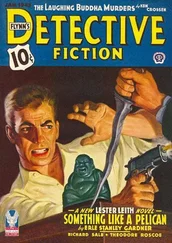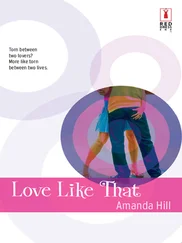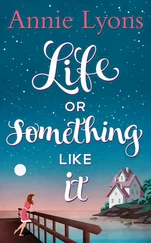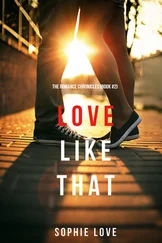Eghobamien Adrawus wandered so far down the road that his colleagues’ voices faded, and the checkpoint bonfires became faint sparks in the night. He liked the feel of the tarmac, the hardness of it, against the soles of his feet. Several times, for no reason at all, he lifted his knee as high as it would go and stamped down. The rubbish of travelers lay scattered about his feet: a Styrofoam container upturned and seething with ants; a smashed Pepsi can; a half-eaten turkey leg. He crushed an empty crab shell underfoot, then halted and unzipped his fly. His urine sprayed into the bushes.

“Adrawus! Nah you be that?”
The policemen peered into the darkness beyond which their firelight could not penetrate. Their rifle barrels threw long, wavering shadows against the road.
“Nah me o,” Eghobamien Adrawus called back. He drew closer with slow steps, emerged from the shadows, and approached the barricade. His colleagues lowered their guns.
Eghobamien Adrawus saw a shimmer in the distance. It grew bolder, became a glint. By the time it collected into two halogen orbs that arced through the darkness, he and the other policemen had taken up their positions. Mfonobong flicked on his torch, stepped into the path of the vehicle, and waved the torchlight with the wrist motions of a fly fisherman. At what seemed the final moment, the car braked with a screech of tires. It stopped within a hand’s breadth of Mfonobong’s knees. It was a black Toyota Avensis with a customised plate that spelled “EGO-1.”
“ Sanu,” the driver greeted Mfonobong, who’d walked up to his window. Mfonobong remained silent. He trained his torchlight on the man’s face while Otizara circled the car, peering in. There was someone in the backseat. Otizara nodded.
“Park well and open your boot,” Mfonobong said.
The policemen made signs to each other with their hands. In a flash they had drawn up the plan of action: Mfonobong and Eghobamien Adrawus would do the talking while their colleagues guarded the road behind and ahead. The inspector, as befitted his status, would keep out of the discussion. Per routine, the inspector hurried over to the police van parked on the median strip and climbed into the driver’s seat, then turned on the ignition and flicked the headlights to low beam, to show preparedness to give chase. By the time the car pulled to the verge the game board was set, the pieces all in place.
Mfonobong rapped the roof. “Off your engine and come out,” he ordered the driver. A rush of chilled, Ambi Pur — scented air spilled out of the car door as the driver stepped onto the road. Smiling, he tossed a chunk of kola nut into his mouth. “My particulars,” he said, extending a sheaf of papers to Mfonobong.
“I ask you?” Mfonobong said. From the other side Eghobamien Adrawus asked, “Wetin dey your boot?”
The driver turned aside to spit. “Nothing,” he said.
“Open am,” Mfonobong said.
The driver’s smile hardened. He locked eyes with the policeman.
“I say open your boot, you no dey hear?”
The driver turned his back on Mfonobong and stooped into the open door to say something to the person in the car. There was an electric hum as the right-side back window rolled down.
“Come here, Constable.”
The authority in this new voice caused Mfonobong and Eghobamien Adrawus to start forward at the same time. The man’s thick-muscled head was turned to the open window; his face wore no expression. He was dressed in a sugar-white lace dashiki, with elaborate gold embroidery around the neck and sleeves. His paunch was distinguished, his goatee assiduously trimmed, his eyes hidden by gold-rimmed sunglasses. His cloth cap lay at the other end of the seat, discarded among a jumble of newspapers. He exuded the fragrance of one who would think nothing of spending a police constable’s salary on a bottle of cologne.
The light from Mfonobong’s torch reflected off the sunglasses. “May I know you?” he asked.
“You may not. Remove that light from my face.”
Mfonobong switched off the torch.
“So you’re the one who wants to delay me?” the man in white asked, addressing Eghobamien Adrawus. His voice was deep and heavy grained. He spoke English like one who thought in it. “You want to check my trunk? What do you want to see?” He raised his voice: “Abdullahi — enter the car.”
This command woke the policemen. “If you move!” Mfonobong growled at the driver and raised his gun. Eghobamien Adrawus rattled the handle, but the door was locked. “Open this door,” he said. At that moment, right beside his ear, Mfonobong roared, “Come down!” and pointed his gun into the car.
“What? Constable, you dare point your weapon at me?” The man’s surprise surprised the policemen — they exchanged baffled glances. Inspector Habila, who had come up behind them, interposed:
“I am the ranking officer here. Step out of the car and identify yourself.”
“I am not coming down from this car. . Inspector,” said the man, reaching into the folds of his cloth as he spoke. “As for identification, here, take it.” He extended his hand to Mfonobong, who lowered his rifle, leaned forward warily, and peered at the man’s hand. He jerked to attention. Ducking his head, he reached his hand forward.
“Wetin be that?” Inspector Habila asked, craning his neck.
Awe had turned Mfonobong’s rude baritone into a meow. “Nah bundle of five-five hundred o, oga,” he said.
The inspector snapped his heels and stood to attention. “Thank you, sah— ego one! ” he hollered.
“As you were, Inspector,” the man in white said. His fingers stroked his belly; he settled back against the seat. “Abdullahi?” he called.
The driver entered the car. The engine started. The windows rose.
Eghobamien Adrawus tore his gaze from the money in Mfonobong’s hand. The man’s disregard for their authority was not believable. If he wasn’t afraid, why did he part so easily with money, and so much of it?
Eghobamien Adrawus took a step forward. He looked back — the distance this put between him and the others made it harder to take the next step.
“Hold it!” he said. He placed his hand on the glass to halt its roll. “I still want to see what’s inside your boot.”
“Ehn?” Inspector Habila and Mfonobong burst out together.
“Yes,” Eghobamien Adrawus said.
The light was too weak to show if his words had any effect on the man. And then it was too late: Inspector Habila darted forward and struck his hand from the glass. “Adrawus!” the inspector hissed, pulling him away. “Wetin dey worry you? You no get respect?”
“But oga—”
“No but! But which but dey for the matter — the oga don settle us, abi?” The inspector clutched Eghobamien Adrawus’s forearm with one hand and threw the other round his shoulder, by turns massaging and slapping his neck. Their reflection in the closed window showed confusion on the inspector’s face as he sought agreement from Mfonobong, who was nodding vigorously. “Settlement nah settlement. Leave the man make e go.”
At the inspector’s words, the car shot forward with such power that Chukwuma, who was guarding the road ahead, had time only to whip his head up and shout in fear before diving into the bushes.
.3 .
The policemen stayed awake through the night in celebration of their good fortune. At daybreak, after they had divided up the money, Inspector Habila insisted that they would drop Eghobamien Adrawus at home. In front of his apartment block, the inspector looked down at Eghobamien Adrawus’s toes digging into the grass and muttered, “At least now you go fit buy the correct size of boot.”
Читать дальше
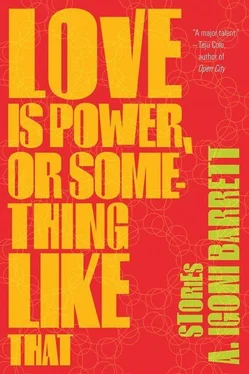

![Сьюзан Кейн - Quiet [The Power of Introverts in a World That Can't Stop Talking]](/books/33084/syuzan-kejn-quiet-the-power-of-introverts-in-a-wo-thumb.webp)
